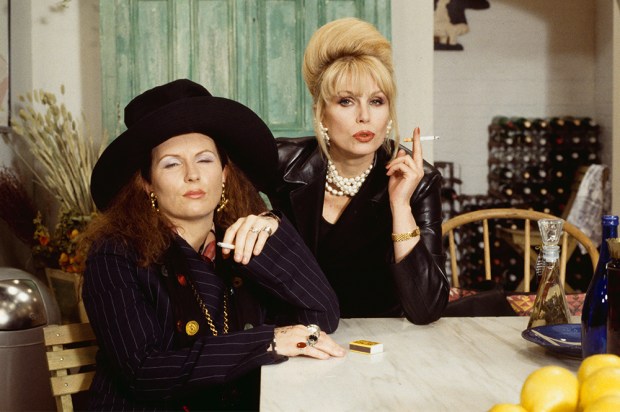Did you know that if you use the f-word while talking to a BT representative, they hang up on you? Here’s how our conversation went when I finally got through after several abortive attempts and ‘holding’ for at least 15 minutes. Me: ‘I’m ringing because the engineer who was supposed to come between 8 a.m. and 1 p.m. has not turned up. I’ve been waiting for over five hours. My name is xxx, my reference number is xxx.’ BT man: ‘Could you give me your date of birth and the first line of your address?’ Me: ‘My date of birth is xxx, my address is xxx. This is the third time I’ve been asked.’ BT man: ‘I’ll have to ask you a few more questions for security reasons…’ Me: ‘Oh please, can you just tell me, where is the fucking engineer?’ BT man: ‘It is against BT policy to use bad language.’ Me: ‘Well, it’s not against my policy.’ BT man: Click.
The deaths of 40,000 people a year in the UK (9,500 in London) are, according to medical research, linked to air pollution. I’m not entirely convinced that it’s possible to measure accurately the extent to which sufferers from lung or heart problems are finished off by emissions from cars, factories etc. But there’s another health hazard which medical researchers might usefully look into: how many lives are shortened by the frustrations of spending hours, sometimes days, trying to get through to the customer services of our main utilities; and then, when we finally reach the right person, struggling to understand his or her accent through the long-distance crackle.
Another piece of medical research, featured in the FT recently, suggests that everything we’ve been told for decades about diet and healthy eating is wrong. To be thin and fit, we must eat butter, cheese, red meat and, yes, double cream. Forget fruit; low-calorie foods will make us fatter in the long run. While trying to take in this total turnabout, it occurred to me that in all the reams of advice about diet that I’ve read, I can’t remember the word ‘hungry’ ever being mentioned. And yet it’s almost impossible to lose weight without suffering hunger pangs. Overweight and obese people, it seems to me, need advice about how not to give in to hunger just as much as about healthy eating. Perhaps a new form of therapy is needed — for hunger management.
Whatever one may think of Anthony Trollope (I think he is great), there’s a general view that his novels are thoroughly conventional, in substance and in style. Not so. I have been reading some of his lesser-known works and have been astonished. Take, for example, The Fixed Period (1882), a futuristic tale whose theme is euthanasia. It is set in a small island near New Zealand in the late 20th century, where the inhabitants have created a flourishing democratic republic. While still young, they voted for a law decreeing that all citizens should be humanely and ceremoniously done away with as soon as they reach the age of 68. Their popular president had persuaded them that the world would be a happier and wealthier place if the indignities and costs of old age were painlessly eliminated. The story of what happens when the time for ‘departure’ looms is told by the president himself — an early version of the ‘unreliable narrator’. Another ‘un-Trollopian’ novel, Nina Balatka (1867), is set in Prague. A beautiful Christian girl and a handsome Jewish merchant wish to get married. Their families, of course, try to prevent it. The startling thing is that all the baddies in this book are Christians.
Men who wolf-whistle at women in the street are now described as misogynists. But isn’t this standing the meaning of the word on its head? I can understand that some women find wolf-whistling demeaning (personally, I’ve always been cheered up by it) and most whistlers may well be lechers or brutes who regard women as sex objects. But do they really despise the whole female gender? Couldn’t they more accurately be called admirers (albeit crude ones) of the female form? This use of the word ‘misogyny’ fits perfectly into what George Orwell called ‘pretentious diction’: it gives ‘an air of scientific impartiality to biased judgments’.
Last Thursday London was put on ‘red alert’: a ‘filthy cloud of pollution’ was due to blow in from Germany’s industrial heartlands. This emergency health warning was based on predictions from scientists at King’s College London. In the event, there were clear blue skies throughout the day.
Got something to add? Join the discussion and comment below.
Get 10 issues for just $10
Subscribe to The Spectator Australia today for the next 10 magazine issues, plus full online access, for just $10.














Comments
Don't miss out
Join the conversation with other Spectator Australia readers. Subscribe to leave a comment.
SUBSCRIBEAlready a subscriber? Log in